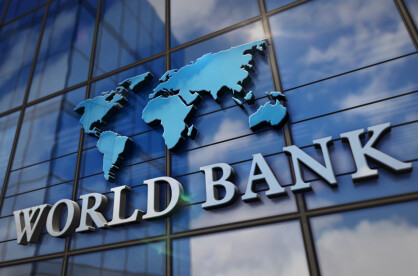The World Bank warns of stagflation risk amid a slump in growth
The bank's latest report compares the current situation with the turmoil of the 1970's, which was followed by a series of debt problems.

The bank's latest report compares the current situation with the turmoil of the 1970's, which was followed by a series of debt problems.

The latest edition of the Global Economics report released by the World Bank on 7 June 2022, projects major concerns about stagflation or high inflation with stagnant growth due to the global pandemic and the Russian invasion of the Ukraine war. The report also anticipates global alarming challenges to the economic growth of middle and low-income countries with a 5 percent fall in per capita income in emerging economies.
The report also unveils fresh insights on how the war’s effects on energy markets that are clouding the global growth outlook. According to the press release by World Bank, global growth is expected to slump from 5.7 percent in 2021 to 2.9 percent in 2022— significantly lower than the 4.1 percent that was forecasted in January 2022. The World Bank also states that the ongoing global risks are to blame for the anticipated downward movement of global economic growth to 1.5 percent in 2023.
The report also indicates that the war in Ukraine has led to a global surge in prices across a wide range of energy-related commodities such as natural gas, oil, and diesel fuel which brings uncertainty to smaller economies around the world with higher reliance on the imports of these commodities.
As per the report, East Asia & Pacific region is projected to decelerate their growth to 4.4 percent in 2022, Europe and Central Asia are expected to shrink by 2.9 percent, and the Middle East and North Africa growth are forecast to accelerate to 5.3 percent before slowing to 3.6 percent in 2023.
Could a slow-down in the global economy and a rise in the price of energy-related commodities bring economic challenges to the Maldives?
It is inevitable that the Maldives will face economic challenges due to changes in the world economy. The statistics report released by the Maldives Customs Service for the first quarter of 2022, indicates the Maldives depends on high consumption of energy-related commodities imports such as petroleum oils, petrol, diesel, and gas from neighboring countries including India, Oman, Saudi Arabia, Singapore, and UAE.
An external shock in the form of higher import prices due to changes in the economies of East Asia, Central Asia, and the Middle East region is expected translate into high inflation in the Maldives economy which may lower the real per capita income due to an increase in the overall price level. Additionally, as per the statistics from World Integrated Trade Solution (WITS), over 70 percent of goods and services are imported to the Maldives, particularly from Asia and the Middle East region, anticipating economic turmoil over the coming years.
To overcome current global economic challenges, the World Bank president, Mr. David Malpass encourages nations to announce their plans to increase production and avoid trade restrictions and signals to reduce price pressures harming the low-income earners. Malpass also believes changes in fiscal, monetary, climate, and debt policy are needed to counter capital misallocation and inequality worldwide.



